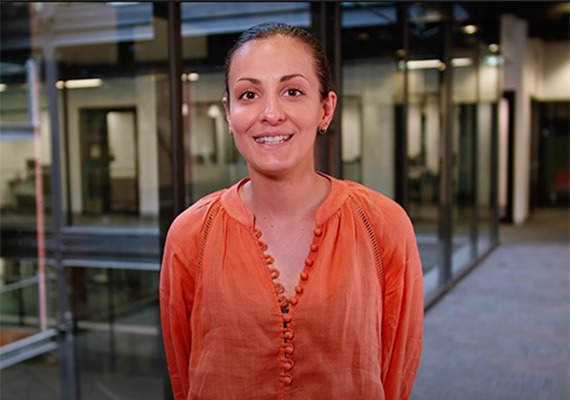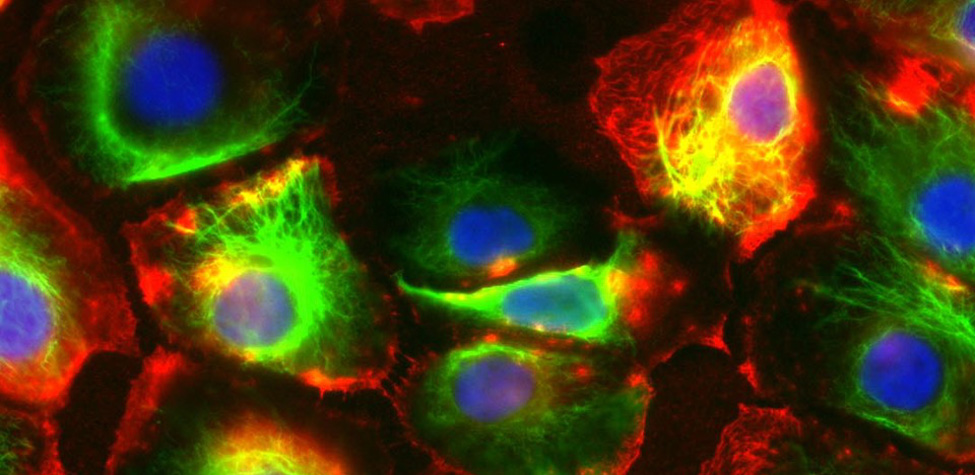Cancer is a diagnosis none of us want to receive; however, scientific advances and a shift towards personalised, holistic medicines are resulting in improved survival rates.
Up until now, neuroendocrine cancer diagnosis and treatments have not benefited from these advances due to the complex nature of the disease.
Neuroendocrine cancers occur mostly in the gastrointestinal tract but can also be found in other parts of the body, with tumours varying considerably between patients.
This form of cancer has two main 'biomarkers', including markers common to endocrine cells such as estrogen and progesterone, and markers common to nerve cells.
The incidence of neuroendocrine cancers is increasing. It is the 7th most diagnosed cancer with 5437 cases a year.
The chance of surviving at least five years was only 51% in 2022, compared to the nearly double, 91.8% five-year survival rate for women diagnosed with breast cancer.
As a leader in her field, molecular bioscience researcher Professor Leigh Ackland was the perfect candidate to lead the collaborative, groundbreaking research into neuroendocrine cancer, kick-starting in 2017.
'Our successful National Health and Medical Research Council grant drew on the Australasian Gastro-Intestinal Trials Group showing the need for more personalised neuroendocrine cancer treatments,' Professor Ackland explains.
'Our laboratory-based research utilising patient biopsies from the clinical trial taken at the commencement and end of cancer treatment, highlighted each patient’s unique biochemistry, in relation to the different levels of cancer markers within their cells.'
Our goal from the start was to explore this disease from several angles and ultimately design targeted, individualised treatments.
Professor Leigh Ackland
Deakin University
Thanks to this major grant, and other generous funding, Professor Ackland and the team have been working to pinpoint early, less invasive detection of neuroendocrine cancers using blood sampling and to better understand what causes these cancers to spread throughout the body.
Their plan to embark on molecular-based research, integrating immunochemistry and genomics, in partnership with experienced clinicians, was inspired by a meeting at Deakin University.
The conversation between Professor Ackland and visiting oncologist Dr Mustafa Khasraw, resulted in scientists, doctors and nurses partnering to bridge the gap in cancer treatment. Initially, the team looked to integrate the latest blood sampling technology as a key diagnostic and research tool.
Deakin researchers have been using new technologies, such as digital droplet PCR, to identify blood markers for neuroendocrine cancer and define clinical parameters to help diagnose the disease.
Biological information on individual cancer traits is being collated to help develop powerful 'molecular fingerprints' that more effectively distinguish neuroendocrine cancer cells from normal, healthy ones.
'We are tapping into evolving knowledge of the mRNA activities of cancer cells and are beginning to understand how differently this cancer manifests itself in individual patients,' Professor Ackland says.
According to Professor Ackland, philanthropic support plays an essential role in advancing her team’s work.
'The generous support of our donors, including the Bourne Foundation, is a game-changer and makes this research possible.'
The Bourne Foundation has donated $300,000 over three years, helping to fund the invaluable contributions of Deakin’s Higher Degree Research students' essential laboratory work and other key aspects of the project.
For Professor Ackland, this support has been a lifeline.
'We are very grateful to our donors for their generous funding, helping us to identify cures faster, ultimately giving the gift of life.'

Making a nationwide health impact through research
Christina explains how donations to Deakin's Early Career Researchers Fund support our collective growth and advancement of society. Christina's research focuses on practical ways to help Australians achieve a healthy diet in order to combat chronic disease.
Interested in finding out more?
Donating to one of our key priority funds allows you to make a positive difference to a student's life in a way that's meaningful to you. Want to support meaningful research? The Deakin Early Career Researchers Fund provides focused grants that enable researchers to extend their work and research focus.

